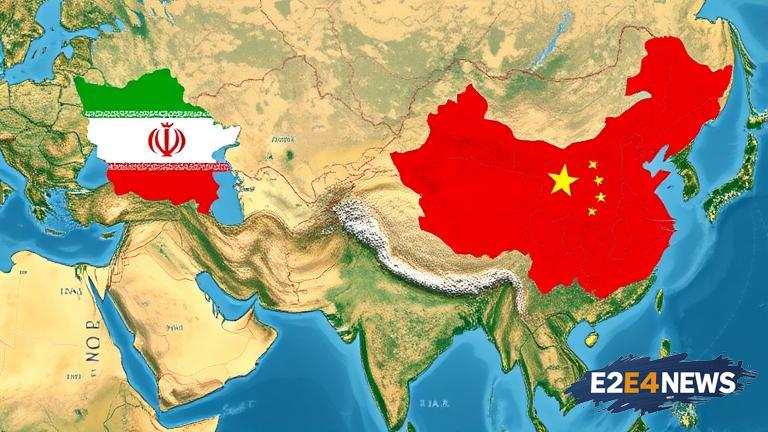In a move that is being seen as a strategic blow to the United States, Iran has announced plans to ditch the Global Positioning System (GPS) and instead adopt China’s Beidou navigation system. This decision is part of a broader effort by Iran to reduce its dependence on Western technology and strengthen its ties with China. The Beidou system, which was launched in 2000, is a satellite-based navigation system that provides location information and timing signals to users. It is seen as a rival to the US-controlled GPS system, which has been the dominant navigation system globally for decades. By adopting the Beidou system, Iran is seeking to reduce its vulnerability to US sanctions and improve its military and economic cooperation with China. The move is also seen as a significant boost to China’s Belt and Road Initiative (BRI), which aims to promote economic cooperation and connectivity across Eurasia. Iran’s decision to abandon GPS is not surprising, given the country’s history of tensions with the US. The US has imposed stringent sanctions on Iran, which have limited the country’s access to Western technology, including GPS. By adopting the Beidou system, Iran is seeking to circumvent these sanctions and maintain its access to navigation technology. The Beidou system has been gaining popularity in recent years, with several countries, including Pakistan, Saudi Arabia, and Thailand, adopting the system. The system has also been used by the Chinese military, which has developed a range of applications, including missile guidance and navigation. Iran’s adoption of the Beidou system is expected to have significant implications for the country’s military and economic development. The system will provide Iran with a reliable and independent navigation system, which will improve the country’s military capabilities and reduce its dependence on US technology. The move is also expected to boost Iran’s economic cooperation with China, which is one of the country’s largest trading partners. The two countries have signed several agreements in recent years, including a $400 billion economic cooperation agreement, which aims to promote trade and investment between the two countries. The adoption of the Beidou system is seen as a key component of this agreement, as it will provide Iran with a reliable and independent navigation system that will facilitate trade and economic cooperation between the two countries. The move is also seen as a significant challenge to the US, which has long dominated the global navigation market. The US has imposed sanctions on several countries, including Iran, for adopting the Beidou system, but these sanctions have had limited impact. The adoption of the Beidou system by Iran is expected to embolden other countries to follow suit, which could lead to a significant shift in the global navigation market. The US is likely to respond to Iran’s decision by imposing further sanctions on the country, but these sanctions are unlikely to have a significant impact. The move is also expected to have significant implications for the global economy, as it will provide China with a significant advantage in the navigation market. The Beidou system is seen as a key component of China’s BRI, which aims to promote economic cooperation and connectivity across Eurasia. The adoption of the Beidou system by Iran is expected to boost China’s economic influence in the region, which could lead to a significant shift in the global economic balance of power. In conclusion, Iran’s decision to abandon GPS and adopt the Beidou system is a significant move that is expected to have far-reaching implications for the country’s military and economic development. The move is seen as a strategic blow to the US, which has long dominated the global navigation market. The adoption of the Beidou system is expected to boost Iran’s economic cooperation with China, which is one of the country’s largest trading partners. The move is also seen as a significant challenge to the US, which is likely to respond by imposing further sanctions on the country.
